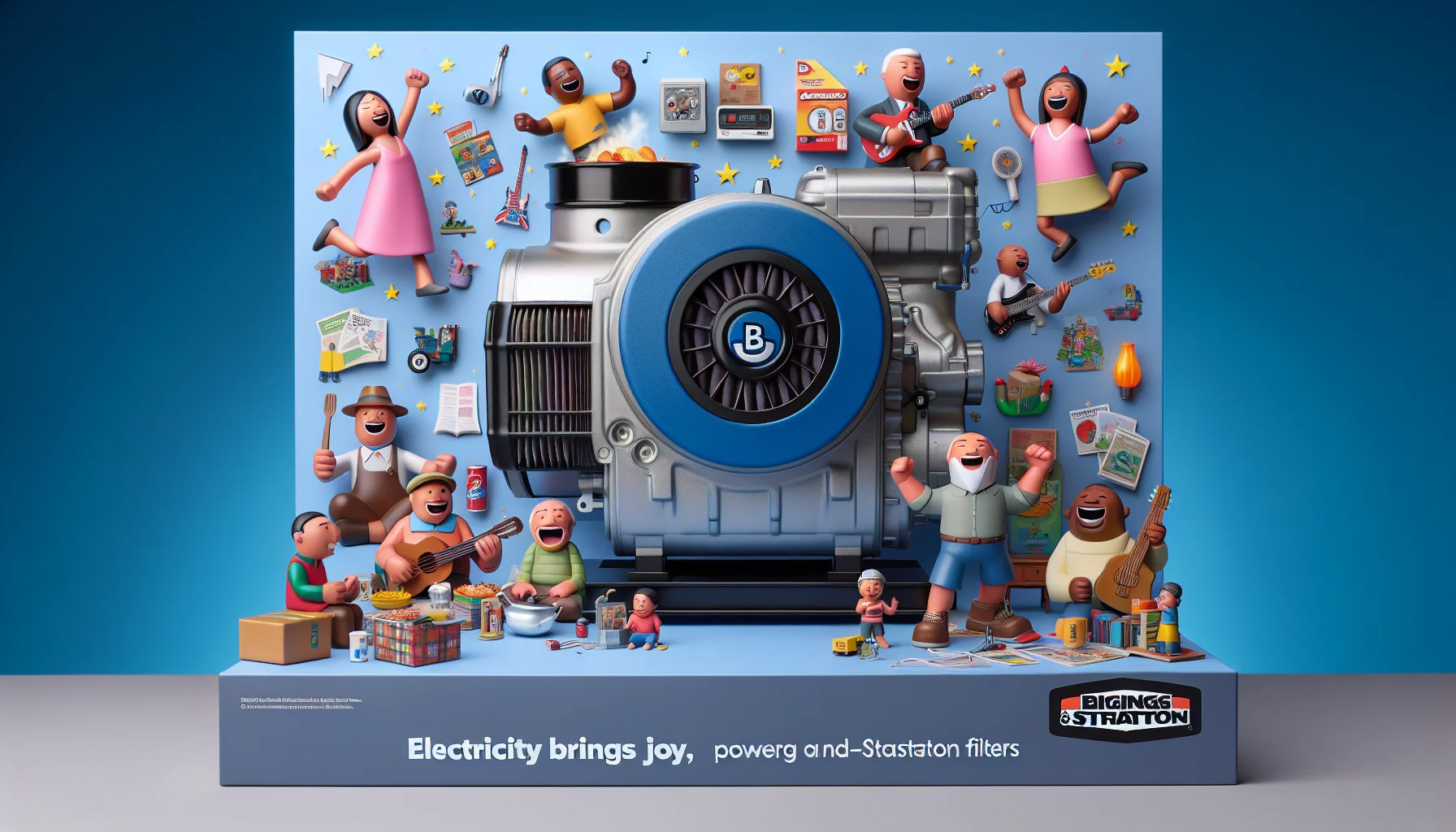Briggs and Stratton Filter Quiz
Test Your Knowledge
Question of
Understanding Briggs and Stratton Filters for Efficient Power Generation
Briggs and Stratton filters play a crucial role in maintaining the efficiency and longevity of power generation systems. These filters are designed to remove contaminants from fuel and oil, ensuring that engines run smoothly and efficiently. A clean filter ensures optimal performance by preventing clogging and reducing wear on engine parts. This not only enhances the power output but also significantly extends the lifespan of the engine. Regular replacement and maintenance of Briggs and Stratton filters are key to achieving efficient power generation and reliable engine performance.
Types of Briggs and Stratton Filters
- Air Filters
- Oil Filters
- Fuel Filters
- Carburetor Filters
- Hydraulic Filters
How to Choose the Right Briggs and Stratton Filter
Choosing the right Briggs and Stratton filter for your power generation needs requires an understanding of your equipment's specific requirements and the environment in which it operates. Begin by consulting your equipment's owner's manual for the manufacturer's filter recommendations. Consider the engine model, as different models may have unique filtration needs. Additionally, take into account the operating conditions, such as dusty or dirty environments, which may necessitate more frequent filter changes or specific filter types to ensure optimal performance and longevity of your Briggs and Stratton engine.
Installation Guide for Briggs and Stratton Filters
To install a Briggs and Stratton filter in a power generator, start by ensuring the generator is off and cool. Locate the air filter housing on the side of the engine. Unscrew or unclip the cover and remove the old filter. Before inserting the new filter, clean the housing with a dry cloth to remove any debris. Place the new filter into the housing, ensuring it fits snugly. Replace the cover securely. Check the owner's manual for any specific instructions related to your generator model. It's recommended to check the filter regularly and replace it as needed to keep your generator running efficiently.
Maintenance Tips for Briggs and Stratton Filters
- Regularly check the filter for clogs and debris to ensure efficient airflow.
- Replace the air filter annually, or more frequently in dusty conditions, to prevent engine damage.
- Clean the pre-cleaner (if applicable) every 25 hours of use or every season.
- Ensure the filter is properly seated and the housing is securely fastened to prevent unfiltered air from entering the engine.
- Use only Briggs and Stratton genuine filters for optimal fit and performance.
- Avoid using compressed air or solvents to clean the filter, as they can damage the filter media.
- Inspect the fuel filter (if equipped) regularly for blockages and replace it every season to ensure smooth fuel flow.
- Before installation, check for any damage or tears in the new filter that could compromise its effectiveness.
- Follow the specific maintenance schedule outlined in your equipment's owner manual to ensure timely maintenance.
Common Problems and Solutions with Briggs and Stratton Filters
| Common Problems | Solutions |
|---|---|
| Filter appears clogged and engine performance is reduced | Replace the filter with a new one to ensure optimal airflow and engine performance |
| Oil leaking around the filter area | Check for proper installation and ensure the seal is intact; replace the filter if necessary |
| Engine starts then stalls shortly after | Clean or replace the air filter to improve air intake; also check the fuel filter for blockages |
| Decreased fuel efficiency | Inspect and replace the fuel filter if it is old or clogged to restore fuel flow and efficiency |
| Excessive smoke from exhaust | Ensure the air filter is clean and unobstructed; replace if necessary to reduce smoke emissions |
The Future of Power Generation with Briggs and Stratton Filters
In the rapidly evolving landscape of power generation, Briggs and Stratton filters stand at the forefront of innovation and efficiency. As we look towards the future, several upcoming trends and technological advancements are poised to redefine the role of these filters in the industry. Among these, the integration of smart technology stands out, offering the potential for real-time monitoring and predictive maintenance capabilities. This advancement promises to significantly reduce downtime and optimize performance by alerting operators to potential issues before they escalate into costly repairs.
Additionally, the development of more environmentally friendly filter materials is on the horizon, reflecting a growing industry focus on sustainability. These new materials aim to enhance filtration efficiency while reducing environmental impact, aligning with global efforts to combat climate change. As Briggs and Stratton continue to innovate, their filters are expected to play a pivotal role in making power generation systems more reliable, efficient, and green.












